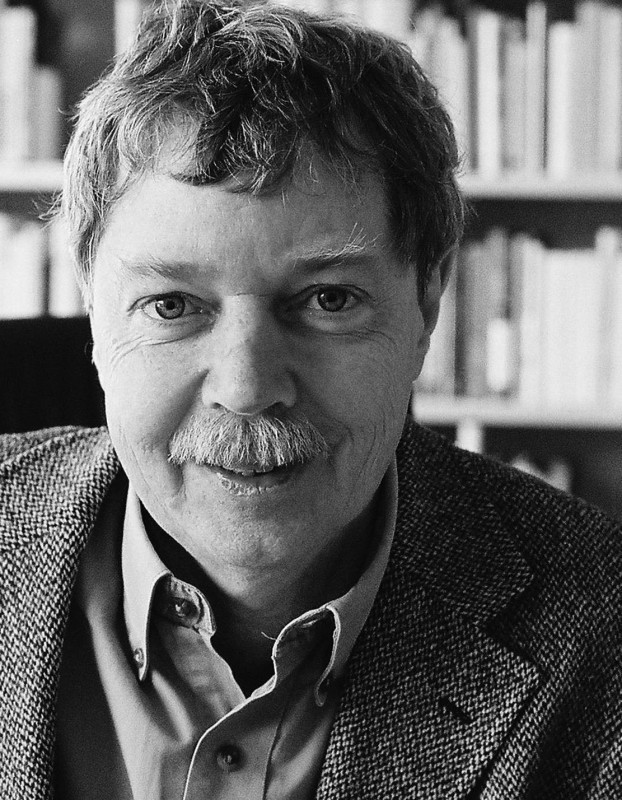KLI Colloquia are invited research talks of about an hour followed by 30 min discussion. The talks are held in English, open to the public, and offered in hybrid format.
Join via Zoom:
https://us02web.zoom.us/j/5881861923?omn=85945744831
Meeting ID: 588 186 1923
Spring-Summer 2026 KLI Colloquium Series
12 March 2026 (Thurs) 3-4:30 PM CET
What Is Biological Modality, and What Has It Got to Do With Psychology?
Carrie Figdor (University of Iowa)
26 March 2026 (Thurs) 3-4:30 PM CET
The Science of an Evolutionary Transition in Humans
Tim Waring (University of Maine)
9 April 2026 (Thurs) 3-4:30 PM CET
Hierarchies and Power in Primatology and Their Populist Appropriation
Rebekka Hufendiek (Ulm University)
16 April 2026 (Thurs) 3-4:30 PM CET
A Metaphysics for Dialectical Biology
Denis Walsh (University of Toronto)
30 April 2026 (Thurs) 3-4:30 PM CET
What's in a Trait? Reconceptualizing Neurodevelopmental Timing by Seizing Insights From Philosophy
Isabella Sarto-Jackson (KLI)
7 May 2026 (Thurs) 3-4:30 PM CET
The Evolutionary Trajectory of Human Hippocampal-Cortical Interactions
Daniel Reznik (Max Planck Society)
21 May 2026 (Thurs) 3-4:30 PM CET
Why Directionality Emerged in Multicellular Differentiation
Somya Mani (KLI)
28 May 2026 (Thurs) 3-4:30 PM CET
The Interplay of Tissue Mechanics and Gene Regulatory Networks in the Evolution of Morphogenesis
James DiFrisco (Francis Crick Institute)
11 June 2026 (Thurs) 3-4:30 PM CET
Brave Genomes: Genome Plasticity in the Face of Environmental Challenge
Silvia Bulgheresi (University of Vienna)
25 June 2026 (Thurs) 3-4:30 PM CET
Anne LeMaitre (KLI)
KLI Colloquia 2014 – 2026
Event Details

You are invited to a Zoom meeting.
9.Apr. 2024 03:00 PM Wien
Register in advance for this meeting:
https://us02web.zoom.us/meeting/register/tZYldO2tpz8vEtMMdjlfxQkpsjttcq9pzuof
After registering, you will receive a confirmation email containing information about joining the meeting.
Topic description / abstract:
I will present some aspects of my new book Split and Splice (Chicago University Press 2023). The overall aim of the book is to give a consistent assessment of experimentation as a knowledge-generating procedure by focusing on its practice. In the first part of the book, the different facets of the process of experimentation are dealt with from a microscopic perspective. The second part deals with its macroscopic features. Taken together, they render visible what is usually overlooked with respect to experimentation, either because it remains below the threshold of perception or because it lies beyond it. Experimental systems are taken as a starting point. They are in themselves already complex units of epistemic objects and the apparatus used to investigate them. Different aspects of an experimental setup are examined more closely in the first part of the book: the production of traces and their conversion into data, the construction of models, the ways of making things visible, the forms of grafting new instruments and procedures onto an existing ensemble, and note-taking. These aspects will be juxtaposed and characterized in their peculiarities and interrelations. The second part of the book focuses on the interrelations that experimental systems entertain among themselves. The characteristic temporal, spatial, and narrative dimensions of these articulations will be traced. Concepts that serve as guidelines in the investigation, such as that of experimental culture, will be presented by way of examples, and they will be developed and tested for their usefulness on materials taken from the history of twentieth-century life sciences.
Biographical note:
The main focus of Hans-Jörg Rheinberger’s research lies in the history and epistemology of experimentation in the life sciences. By bridging the gap between the study of history and contemporary cutting-edge sciences, such as molecular biology, his work represents an example of transdisciplinarity as emerging in the present knowledge-based society. The Swiss-born scientist studied philosophy and biology in Tübingen and Berlin, Germany. He received his MA in philosophy in 1973, his PhD in biology in 1982, and his habilitation in molecular biology in 1987. He was Assistant Professor at the University of Lübeck, Germany, and Associate Professor at the University of Salzburg, Austria. Since 1997, he has been a Scientific Member of the Max Planck Society and Director at the Max Planck Institute for the History of Science in Berlin.
Hans-Jörg Rheinberger has been a fellow of the Institute for Advanced Study in Berlin and of the Collegium Helveticum in Zürich and member of the Scientific Advisory Board of the KLI. He is honorary professor at the Institute for Philosophy and History of Science of the Technical University Berlin, a member of the Berlin-Brandenburg Academy of the Sciences, a member of the Leopoldina, the German Academy of Natural Scientists, and a doctor honoris causa at the Swiss Federal Institute of Technology in Zurich.


